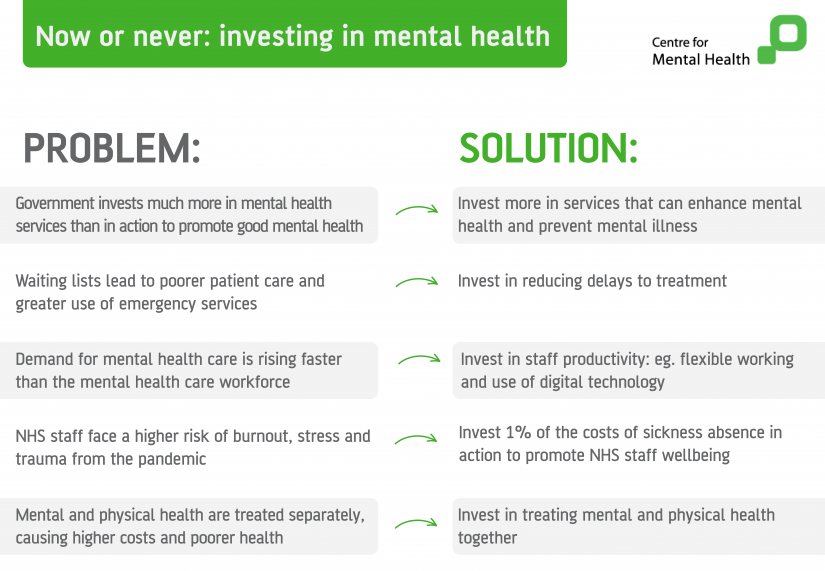A systemic investment review of mental health care in England
Nick O’Shea
The NHS is going to need two to three times current capacity to adequately meet and treat the expected increase in mental health problems resulting from the pandemic. Investing strategically is more important than ever. But where should investment be targeted to have the most positive impact on the public’s mental health?
Return on investment is highest for interventions which improve and enhance mental health. Yet this is the area where least money is currently spent. This report, commissioned by the NHS Confederation’s Mental Health Network, sets out ten key areas where strategic investment could solve systemic issues in the mental health system, with significant benefits to the lives of people with mental health difficulties and their experiences of support.
Watch author Nick O’Shea explain the ten key areas for investment:
Each chapter identifies a systemic problem in the mental health system, substantiates it with facts and figures, and describes a solution and its cost savings. For example:
- Problem: Government invests much more in mental health services than in action to promote good mental health.
- Solution: Invest more in services that can enhance mental health and prevent mental illness.
- Problem: Waiting lists lead to poorer patient care and greater use of emergency services.
- Solution: Invest in reducing delays to treatment.
- Problem: Demand for mental health care is rising faster than the mental health care workforce.
- Solution: Invest in staff productivity: e.g. flexible working and use of digital technology
- Problem: NHS staff face a higher risk of burnout, stress and trauma from the pandemic.
- Solution: Invest 1% of the costs of sickness absence in action to promote NHS staff wellbeing
- Problem: Mental and physical health are treated separately, causing higher costs and poorer health.
- Solution: Invest in treating mental and physical health together.

Although today’s Covid-generated problems are new, the weaknesses in current systems are historic. Rethinking long-held beliefs and accepted truths about treatment for people with a mental illness is needed. This report offers a framework to do this.









